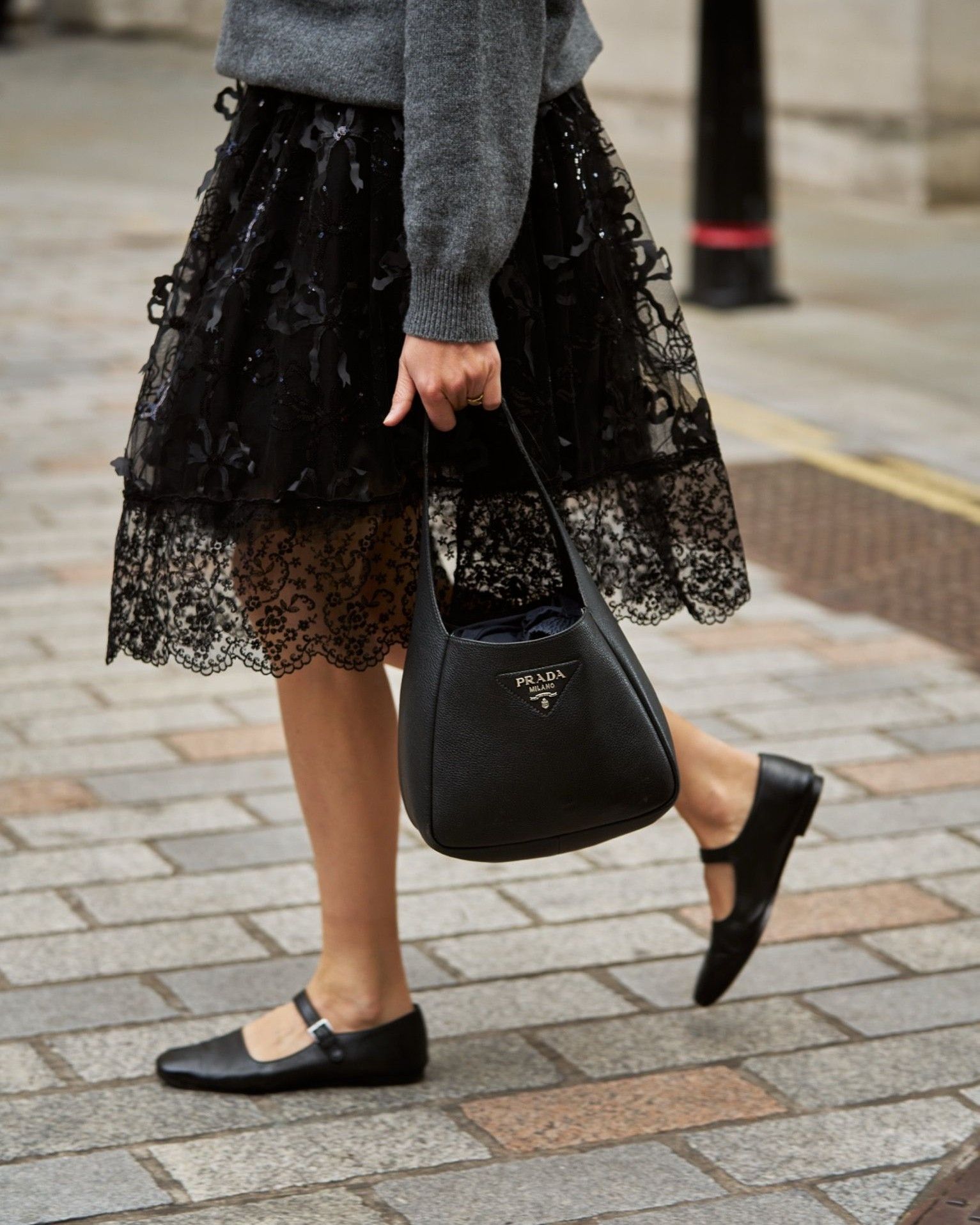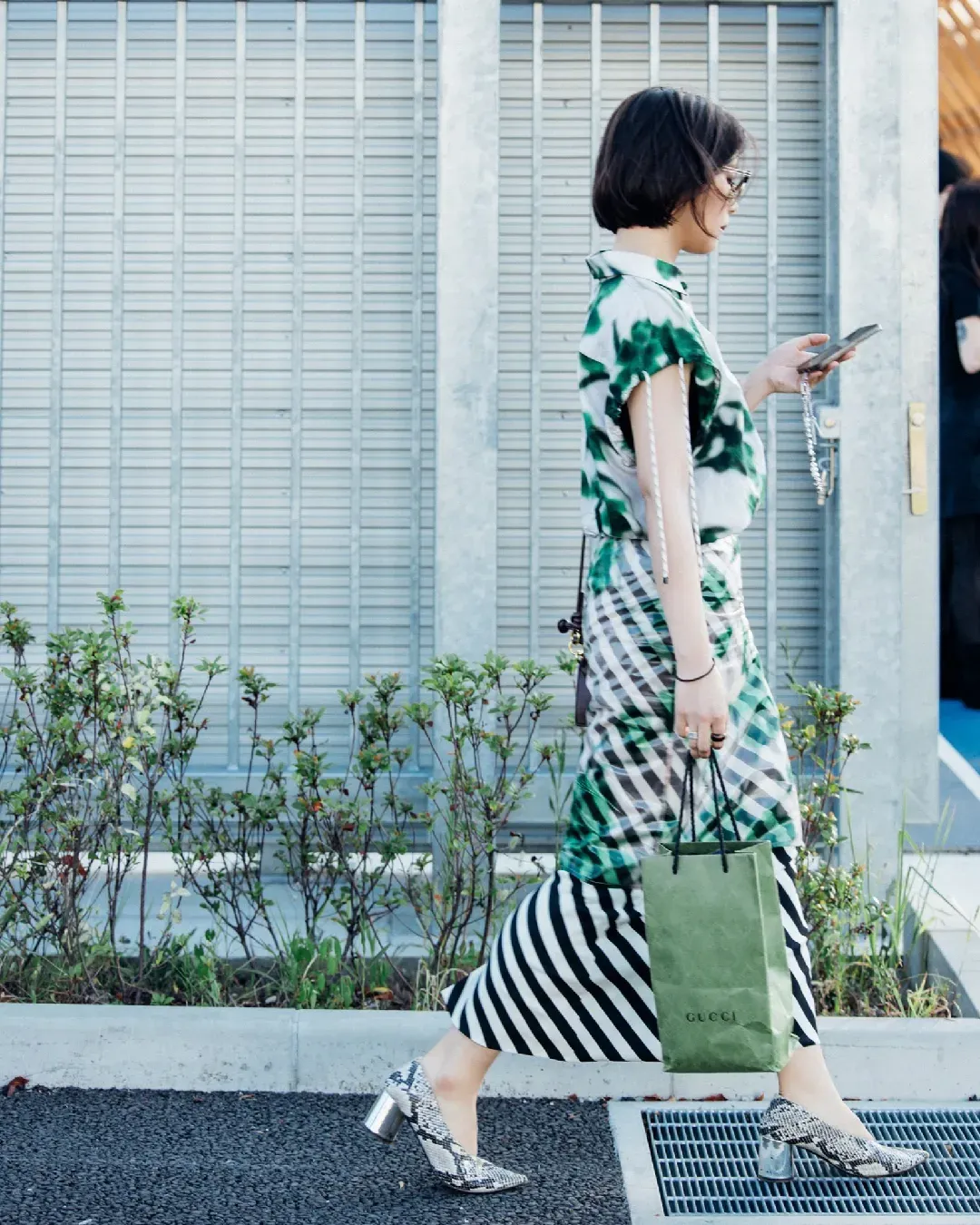
Even buying second hand can mean polluting Do we really need all those vintage Levi's?
Thinking about fashion from a green perspective, paying attention to how and how much we buy and to the sustainability policies of the brands we choose to support, are the changes that every conscientious person has made in recent years to their buying habits. Yet, if on the one hand, thanks to social media, sustainability has become a real wave, especially involving Gen Z, on the other hand, since buying second-hand clothes has become a trend, the same dynamics typical of fast fashion are reappearing: buying a lot at low prices, often compulsively and without a real need. Hauls, unpacking, 'get ready with me' and 'fit checks' are no longer the prerogatives of fast fashion, but real standardised social formats, which today also involve the second hand, tending to homogenise personal tastes and choices of those who approach second-hand fashion.
The products we select, in short, are beginning to become the same, the ones we see in the 'thrift hauls' on TikTok, from skimpy #y2k T-shirts to Ralph Lauren shirts and Levi's 501s. The transition of the second hand from a niche choice to mainstream fashion has obviously attracted the attention of the big fashion multinationals to a world that until then had been protected from speculation, encouraging price increases and the spread of greenwashing initiatives. Approaching second-hand fashion in an ethical manner, respecting nature and one's own personal style is becoming increasingly difficult, and many consumers, considering the purchase of vintage and second-hand products an intrinsically sustainable choice, are not aware of the environmental impact that second-hand fashion also brings.
@emmylizabethhauls GOODWILL BINS HAUL FOUR MASSIVE BAGS!!!! #hauls #haulaccount #shoppingaccount #thrifthaul #goodwillbins #thrifting #shoppinghaul #zarahaul #lululemon original sound - emily’s hauls!
Since second-hand shopping has moved mainly online, on shopping apps, the impact of road transport, the pollution produced by couriers who send products to us in the comfort of our homes, has undoubtedly become more impactful. It is also necessary to pay attention to 'greenwashing circularity', i.e. the idea that by donating clothes we no longer use we will be doing good for people, the environment and we will also have more space in the wardrobe to buy more clothes. This dynamic is actually very harmful, as demonstrated in Ghana, where the arrival of around 15 million used clothes every week creates enormous pollution problems, since around 40% of these clothes cannot be used due to the poor condition and low quality of the fabrics. In short, it is not true that there is a shortage of clothes in the countries of the so-called third world, on the contrary, there are far too many on the planet, but only the creation of fake chains of circularity allow us to empty our overflowing wardrobes and still buy more clothes, whether new or used.
Some simple tricks can really make a difference: preferring city markets instead of online shopping allows us to pollute much less. If you have to buy via an app, it is better to choose shipping to pick-up points: this way the courier makes a single trip with all the parcels, reducing the CO2 produced. Avoiding impulse buys, those to which current trends drive us, not only helps the environment but also our wallets. Buying only when necessary allows us, in fact, to choose pieces that we really like, thinking also about the use we will make of them and the looks we will create. This way, we avoid unnecessary spending on garments that we will quickly forget in the back of the wardrobe.
Upcycling, i.e. recovering and modifying old clothes to make them cool, is a way of reusing clothes that we would otherwise throw away, and encourages creativity and personal style. The more courageous can also experiment with crochet, knitting or embroidery, diy methods for making customised garments. Furthermore, when there are special events and occasions you do not need to buy a new dress every time, there are convenient rental services or you can play with different styling. And why not raid your parents' wardrobe to discover some gems from the past? Finally, we often tend to go shopping (yes, even second-hand and sustainable shopping) when we are angry, sad or bored. Buying something, especially via app and from the comfort of the sofa, becomes a therapy for our mood, but objects cannot give us the serenity we seek, so whenever we feel this urge, it is better to put down the phone and pamper ourselves in some other way.















































